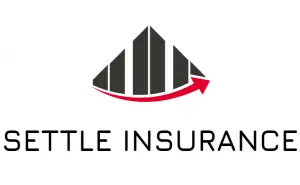“This post may contain affiliate links, if you click a link we may earn a commission if you purchase from that merchant.”
Car insurance is a crucial aspect of owning and driving a vehicle. It provides financial protection in the event of accidents, theft, or damage to your car. Without car insurance, you could be left with significant expenses that can be difficult to handle. In this article, we will explore the various aspects of car insurance and provide you with the information you need to make informed decisions about your coverage.
Table of Contents
Key Takeaways
- Understanding the basics of car insurance is crucial before purchasing a policy.
- Comparing rates from different providers can help you find the best deal.
- Determining the right level of coverage for your needs can save you money in the long run.
- Choosing a provider with a good claims process can make a big difference in the event of an accident.
- Identifying discounts and ways to save money on car insurance can help you lower your premiums.
Understanding the Basics of Car Insurance
There are several types of car insurance coverage available, including liability coverage, collision coverage, comprehensive coverage, and uninsured/underinsured motorist coverage. Liability coverage is required by law in most states and covers damages to other people’s property or injuries they sustain in an accident where you are at fault. Collision coverage pays for damages to your own vehicle in the event of a collision, while comprehensive coverage covers damages caused by non-collision events such as theft, vandalism, or natural disasters. Uninsured/underinsured motorist coverage protects you if you are involved in an accident with a driver who does not have insurance or has insufficient coverage.
Several factors can affect your car insurance rates, including your age, gender, driving record, location, and the type of car you drive. Insurance companies use these factors to assess the level of risk you pose as a driver and determine your premiums. Additionally, the deductible you choose can also impact your rates. A deductible is the amount you must pay out of pocket before your insurance coverage kicks in. Generally, higher deductibles result in lower premiums.
Comparing Auto Insurance Rates from Different Providers
When shopping for car insurance, it is essential to research and compare rates from different providers to ensure you are getting the best deal. You can obtain quotes from multiple companies by providing them with information about yourself and your vehicle. It is important to compare rates for the same level of coverage to get an accurate comparison.
When comparing rates, there are several factors to consider. In addition to the premium cost, you should also look at the coverage limits, deductibles, and any additional benefits or discounts offered by each provider. It is also important to consider the financial stability and reputation of the insurance company. Online tools and resources can help you compare rates and make an informed decision.
Determining the Right Level of Coverage for Your Needs
To determine the right level of coverage for your needs, you should assess your risks and needs as a driver. Consider factors such as your driving habits, the value of your vehicle, and your financial situation. If you have a newer or more expensive car, you may want to consider higher coverage limits to protect your investment. Additionally, if you have significant assets that could be at risk in a lawsuit, you may want to consider higher liability coverage.
In addition to the required coverage, there are optional coverages that you may want to consider. These include rental car reimbursement, roadside assistance, and gap insurance. Rental car reimbursement provides coverage for a rental car if your vehicle is being repaired after an accident. Roadside assistance provides services such as towing, battery jump-starts, and lockout assistance. Gap insurance covers the difference between what you owe on your car loan and the actual cash value of your vehicle in the event of a total loss.
Choosing a Car Insurance Provider with a Good Claims Process
Having a good claims process is crucial when choosing a car insurance provider. When you need to file a claim, you want the process to be smooth and efficient so that you can get back on the road as quickly as possible. Researching and evaluating claims processes can help you choose a provider that will provide excellent service when you need it most.
One way to research claims processes is by reading reviews and ratings of insurance companies. Customers often share their experiences with filing claims and dealing with insurance companies, which can give you insight into their claims processes. Additionally, you can contact insurance companies directly and ask them about their claims process and how they handle claims.
Evaluating the Reputation and Financial Stability of Insurance Companies
The reputation and financial stability of an insurance company are important factors to consider when choosing a provider. You want to ensure that the company you choose has a good track record of customer satisfaction and is financially stable enough to pay out claims.
To evaluate a company’s reputation, you can read reviews and ratings from customers and industry experts. Look for companies that have a history of providing excellent customer service and handling claims efficiently. Additionally, you can check with your state’s insurance department to see if there have been any complaints filed against the company.
To assess a company’s financial stability, you can look at their financial ratings from independent rating agencies such as A.M. Best, Standard & Poor’s, or Moody’s. These agencies evaluate the financial strength of insurance companies and assign them a rating based on their ability to meet their financial obligations.
Identifying Discounts and Ways to Save Money on Car Insurance
Insurance companies offer various discounts that can help you save money on your car insurance premiums. Common discounts include safe driver discounts, multi-policy discounts, good student discounts, and low mileage discounts. Safe driver discounts are typically given to drivers with a clean driving record and no accidents or tickets in a certain period. Multi-policy discounts are offered when you bundle your car insurance with other types of insurance, such as homeowners or renters insurance. Good student discounts are available for students who maintain good grades in school. Low mileage discounts are given to drivers who drive fewer miles each year.
In addition to discounts, there are other ways to save money on car insurance. One way is to increase your deductible, which will lower your premiums but also increase the amount you must pay out of pocket in the event of a claim. Another way is to maintain a good credit score, as insurance companies often use credit scores to determine rates. Additionally, you can consider dropping certain coverages if they are not necessary for your situation.
Understanding the Impact of Accidents and Claims on Your Insurance Rates
Accidents and claims can have a significant impact on your car insurance rates. When you file a claim, your insurance company may consider you a higher risk and increase your premiums as a result. The severity of the accident and the amount of the claim can also affect your rates.
To minimize the impact of accidents and claims on your rates, you can consider paying for minor damages out of pocket instead of filing a claim. This can help you avoid an increase in premiums. Additionally, maintaining a clean driving record and avoiding accidents and tickets can help keep your rates low.
Reviewing the Fine Print and Exclusions in Your Car Insurance Policy
It is important to review the fine print and exclusions in your car insurance policy to ensure you understand what is covered and what is not. Common exclusions to look out for include intentional acts, racing or participating in illegal activities, using your vehicle for commercial purposes, and driving under the influence of drugs or alcohol.
When reviewing your policy, pay attention to the coverage limits, deductibles, and any additional benefits or discounts that may be included. If you have any questions or concerns about your policy, contact your insurance agent or company for clarification.
Getting Help and Advice from Insurance Agents and Experts
Working with insurance agents and experts can provide valuable assistance when navigating the world of car insurance. They can help you understand your coverage options, compare rates from different providers, and answer any questions you may have.
To find a reputable agent or expert, ask for recommendations from friends, family, or colleagues who have had positive experiences with their insurance professionals. You can also check with your state’s insurance department for a list of licensed agents in your area. When working with an agent or expert, be sure to ask questions about their experience, qualifications, and the services they provide.
Reassessing Your Car Insurance Policy Regularly to Ensure Adequate Coverage
It is important to reassess your car insurance policy regularly to ensure you have adequate coverage. Life circumstances can change, and your insurance needs may change as well. Factors to consider when reassessing your policy include changes in your driving habits, changes in the value of your vehicle, and changes in your financial situation.
If you have made significant changes to your vehicle, such as adding modifications or upgrades, you may need to adjust your coverage limits to ensure you are adequately protected. Additionally, if you have paid off your car loan or the value of your vehicle has significantly decreased, you may want to consider dropping collision or comprehensive coverage.
Car insurance is a vital aspect of owning and driving a vehicle. It provides financial protection in the event of accidents, theft, or damage to your car. Understanding the basics of car insurance, comparing rates from different providers, determining the right level of coverage for your needs, and evaluating the reputation and financial stability of insurance companies are all essential steps in finding the right car insurance policy for you. By regularly reassessing your policy and staying informed about discounts and ways to save money, you can ensure that you have adequate coverage at a price that fits your budget.
If you’re in the process of choosing the right car insurance policy for you, it’s important to consider all your options and make an informed decision. However, insurance can be a complex topic, and it’s always helpful to have some guidance. That’s why I recommend checking out this related article on “The Basics of Car Insurance” from Settle Insurance. This article provides a comprehensive overview of car insurance, including the different types of coverage, factors that affect insurance costs, and tips for finding the best policy for your needs. It’s a great resource to help you navigate the world of car insurance and make a well-informed decision.
FAQs
What is car insurance?
Car insurance is a type of insurance policy that provides financial protection against physical damage or bodily injury resulting from traffic collisions and against liability that could also arise from incidents in a vehicle.
Why do I need car insurance?
Car insurance is mandatory in most states and is required by law. It provides financial protection in case of an accident, theft, or damage to your vehicle.
What are the different types of car insurance policies?
The different types of car insurance policies include liability insurance, collision insurance, comprehensive insurance, personal injury protection, and uninsured/underinsured motorist coverage.
How do I choose the right car insurance policy for me?
To choose the right car insurance policy, you should consider factors such as your budget, the type of car you drive, your driving record, and the level of coverage you need.
What factors affect the cost of car insurance?
The cost of car insurance is affected by factors such as your age, gender, driving record, the type of car you drive, your location, and the level of coverage you choose.
What is a deductible?
A deductible is the amount of money you pay out of pocket before your insurance coverage kicks in. A higher deductible usually means lower monthly premiums, while a lower deductible means higher monthly premiums.
What is liability insurance?
Liability insurance is a type of car insurance that covers damages and injuries you may cause to other people or their property while driving.
What is collision insurance?
Collision insurance is a type of car insurance that covers damages to your own vehicle in case of a collision with another vehicle or object.
What is comprehensive insurance?
Comprehensive insurance is a type of car insurance that covers damages to your vehicle that are not caused by a collision, such as theft, vandalism, or natural disasters.
What is personal injury protection?
Personal injury protection is a type of car insurance that covers medical expenses and lost wages for you and your passengers in case of an accident, regardless of who is at fault.
What is uninsured/underinsured motorist coverage?
Uninsured/underinsured motorist coverage is a type of car insurance that covers damages and injuries you may sustain in an accident caused by a driver who does not have enough insurance or no insurance at all.



































